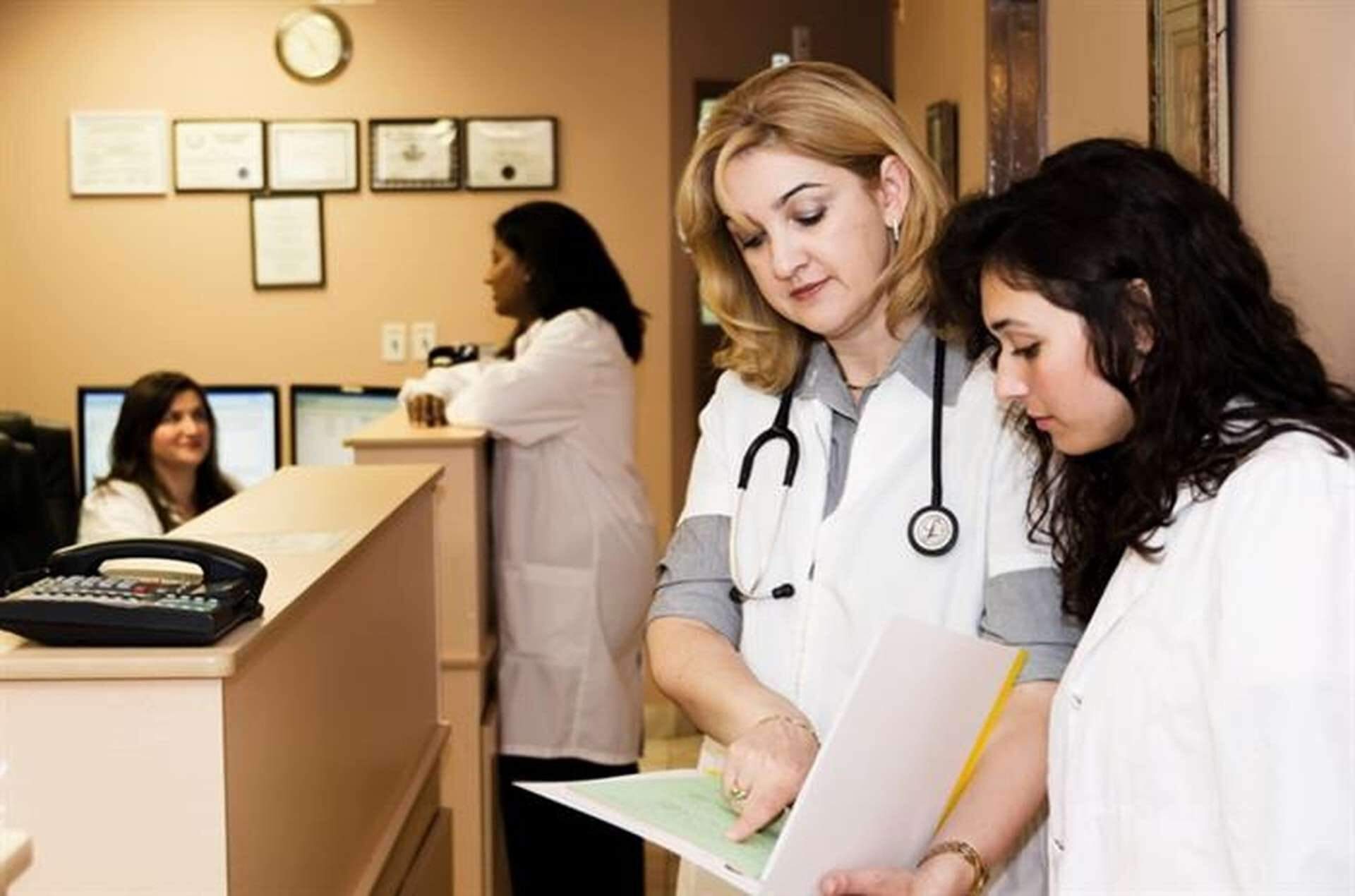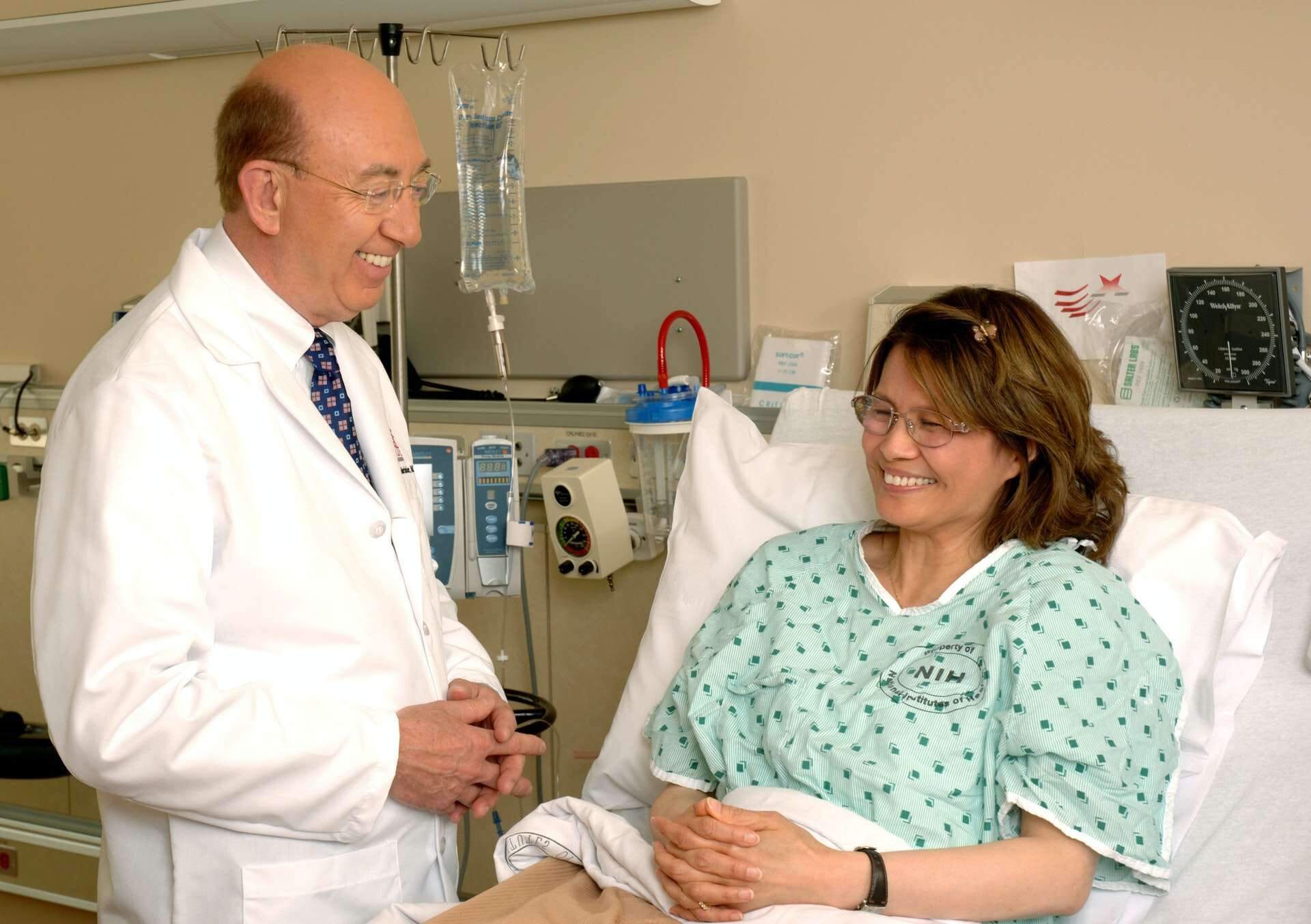
Spanish Medical Terms and Phrases for Healthcare Professionals
DATE:
Imagine you’re traveling in a Spanish-speaking country and suddenly need medical assistance. Being able to communicate effectively with healthcare professionals could make all the difference in an emergency. Learning Spanish medical terms not only bridges the language gap but also fosters better understanding and care. By 2050, the United States will be the largest Spanish-speaking country in the world, surpassing Mexico, which is proudly holding this position right now. Considering that, it’s logical to think that people with Limited English Proficiency (LEP) will require their public needs supplied. Thus, any economic field will increase its demand for Spanish-speaking professionals, and the healthcare industry is no exception. Let’s dive into some crucial medical vocabulary that could be a lifesaver.
Benefits Of Learning Spanish Medical Terms
Beyond the personal career growth or job opportunities to pursue that learning Spanish as a second language may bring to medical professionals or specialists in any field, the real benefit lies in the opportunity to connect with patients, or anyone seeking your services.
By communicating in ways patients can fully understand, you can help to provide a more comfortable experience and a higher quality of care.
Studies have shown that language barriers can pose a significant challenge for communication in hospital settings. The fact is that direct communication between fluent, bilingual medical providers and Spanish-speaking patients can improve health-care quality and experiences, such as patient satisfaction, medication compliance, patient understanding of diagnoses and treatments, better patient contentment and more health education.
Having a Spanish-speaking medical provider means fewer emergency room visits, fewer missed medications, and lower healthcare costs.
In this article we would like to present a basic list of common Spanish medical vocabulary and terminology that might be useful to get you started in this language learning field.
Most Common Spanish Medical Terms in Spanish
The following are the most common medical Spanish vocabulary and phrases expressed by patients:
- Dolor: this word refers to physical or mental pain. Pain usually expresses something going wrong with our body.
- Enfermo: this Spanish word works both as an adjective and as a noun. If we use it as an adjective the word would mean “sick”, meanwhile when used as a noun it would mean “sick patient” or “sick person”.
- Enfermedad: refers to sickness, illness, or disease.
- Me duele: you’ll hear this phrase a lot in the hospital. This phrase can refer to different parts of the body. For example: “Me duele la rodilla” literally means “My knee hurts”. You can replace the noun for the actual part of the body that hurts.
- Tengo dolor de: For example, Tengo dolor de cabeza means “I have a headache” or Tengo dolor de estómago, meaning “I have a stomach ache”. You can also replace the part of the body in which you feel pain/ache.
Medical Professionals In Spanish
- Doctor / Doctora / Médico / Médica: any of these words can be used to refer to a medical doctor.
- Enfermero / Enfermera: these are the masculine and feminine words for the nurse, respectively.
- Internista: this specialist can treat an adult patient with a wide range of symptoms or diseases.
- Cirujano / Cirujana: you can use these Spanish terms to refer to the professional who can cut you wide open, the “surgeon.
- Paciente: this is the term you should be looking for to refer to the patient.
- Intérprete médico: Medical interpreter
Other Medical Specialties in Spanish You Should Know
The specialties here listed are the most common and recognized around the world:
|
Spanish |
English |
|---|---|
|
Fisioterapeutas |
Physiotherapists |
|
Matronas |
Midwives |
|
Farmacéuticos |
Pharmacists |
|
Nutricionistas |
Nutritionists |
|
Odontólogos |
Dentists |
|
Optometristas |
Opticians |
|
Psicólogos |
Psychologists |
|
Psiquiatras |
Psychiatrists |
|
Terapia ocupacional |
Occupational Therapists |
|
Veterinaria |
Veterinary |
Hospital Vocabulary in Spanish
- Sala de emergencia: Emergency Room.
- Sala de parto: delivery room.
- Unidad de cuidados intensivos: Intensive Care Unit

Essential Spanish Vocabulary For Medical History
- ¿Tiene seguro médico?: this question means “Do you have medical / health insurance?”
- ¿Cuál es su…?: the kind of question you’ll use the most. In English it would literally translate as “What is your…?” and you can apply it to gather any kind of information from the patient, for instance, ¿Cuál es su nombre y apellido?, ¿Cuál es su número de seguro social?, etc.
- Nombre y apellido: first name and surname.
- Número de seguro social: one of the most important pieces of data, “Social security number”.
- Dirección: when used in the context of personal information, it means “address” or “home address”.
- Dirección de correo electrónico: if you want to keep the communication with your patient you need to ask for the “email address”.
- ¿Quién es su contacto de emergencia?: Who is your emergency contact?
Important Spanish Terms For Initial Assessment
- Signos vitales: if you are a doctor or a nurse, the first thing you have to do is to check the “vital signs”.
- Temperatura: a piece of valuable information if you’re looking for an infection: “temperature”.
- Presión de sangre: blood pressure.
- Pulso: pulse.
- Diagnosis: diagnosis.
- Peso: a good doctor can never miss this item from the list. The “weight” helps to determine conditions such as underweight, overweight, or obesity.
Don’t hold yourself back! Keep cultivating your medical vocabulary with these Medical Spanish Apps for Healthcare Professionals.
Signs and Medical Symptoms in Spanish
- Síntoma: we can consider “symptom” to any finding that the patient is directly referring to the doctor.
- Fiebre: one of the most common symptoms that a patient refers to the healthcare providers is “fever”.
- Debilidad: Do you feel like staying in bed all day and asking your mom to do everything for you today? Probably, “weakness” doesn’t allow you to be yourself today.
- Hinchazón: patients with swelling arms or legs can indicate serious diseases like cardiovascular, kidney, or liver issues.
- Dolor de cabeza: many people around the world suffer from “headaches”. This can be a sign of migraine, emotional tension, or even hypertension.
- Dolor de garganta: a general and unspecific term referred by patients that sometimes could be associated with viral or bacterial infections. In English it would mean “sore throat”.
- Alergia: in the English language this term means “allergy”, the exaggerated response from your body to a tiny chemical stimulus.
Cardiovascular System Terms In Spanish
-
- Vaso sanguíneo: Blood vessel.
- Arteria: Artery.
- Vena: Vein.
- Ventrícula: ventricle.
- Válvula: valve.
- Infarto al miocardio: this means heart attack, one of the major causes of morbidity and mortality in public health. This can manifest as an extreme pain in your chest that threatens your life.

Gastrointestinal Tract Terms In Spanish
- Malestar estomacal: this phrase literally means “stomach discomfort”.
- Pérdida de peso: this Spanish phrase means “weight loss”. This can be a symptom of a variety of diseases ranging from psychiatric disorders to even cancer.
- Náusea: nausea.
- Vómito: vomit.
- Diarrea: diarrhea
- Estreñimiento: constipation.
Vocabulary for Medical Infections in Spanish
In Spanish, we can find a wide variety of terms and vocabulary to refer to infections.
- Infección: with the word “infection” we can refer to the presence and replication of any kind of microbe within our body.
- Infección viral: when an infection is caused by viruses, such as the ongoing COVID-19 pandemic.
- Infección bacteriana: when the infection is caused by bacteria.
- Infección de piel y partes blandas: these Spanish medical terms are used to refer to an infection of the skin and soft tissues below. In most cases, this infection is caused by bacteria and often requires medication.
- Infección del tracto urinario: in English, these terms would mean “urinary tract infection”.
- Intoxicación alimentaria: Although this Spanish medical term would mean “food poisoning”, in English, it is caused not by poison itself, but by toxins and waste products that bacteria secrete Once they are in your GI tract. It is often the case where patients suffering from food poisoning don’t require any treatment.

Other Useful Spanish Medical Terminology
Parts of the Body in Spanish
|
Spanish |
English |
|---|---|
|
Cabeza |
Head |
|
Eye / Eyes | |
|
Oído / Oídos |
Ear / Ears |
|
Boca |
Mouth |
|
Nariz |
Nose |
|
Brazo |
Arm |
|
Hombro |
Shoulder |
|
Mano |
Hand |
|
Muñeca |
Wrist |
|
Pierna |
Leg |
|
Rodilla |
Knee |
|
Pie / Pies |
Foot / Feet |
|
Dedo |
Finger |
|
Pecho |
Chest |
|
Cadera |
Hip |
|
Espalda |
Back |
Body Organs And Functions In Spanish
|
Spanish |
English |
|---|---|
|
Cerebro |
Brain |
|
Columna |
Backbone |
|
Corazón |
Heart |
|
Apéndice |
Appendix |
|
Vejiga |
Bladder |
|
Pulmón |
Lung |
|
Estómago |
Stomach |
|
Respirar |
To breath |
|
Sangre |
Blood |
Medications In Spanish
|
Spanish |
English |
|---|---|
|
Antibióticos |
Antibiotics |
|
Penicilina |
Penicillin |
|
Jarabe |
Syrup |
|
Receta |
Recipe / Prescription |
|
Alcohol |
Alcohol |
|
Agua Oxigenada |
Hydrogen Peroxide |
Symptoms and Sensations in Spanish
|
Spanish |
English |
|---|---|
|
Mareo |
Dizziness |
|
Picor |
Itch |
|
Tos |
Cough |
|
Alergias |
Allergies |

Wrapping Up: The Importance of Spanish Medical Terms
In its essence, the medical profession is founded on human connections. Aside from treatment protocols and the quality of care, the inability to communicate with patients makes it difficult to connect with them and establish trust.
That’s why context is important to effectively communicate ideas. You can’t limit yourself to technical medical terms alone. An effective language learning program can give you a solid notion of how ideas are constructed using phrases, vocabulary and grammar, and the preparation you need to handle real-life scenarios.
As with all education, you will only remember what you learn when you put it into practice. If you’re looking for the support of an incredible teacher, we can help. Try a free 1:1 class for private lessons or sign up for a free 7-day trial of Group Classes to see how thousands of students are dominating the Spanish language with SpanishVIP.








